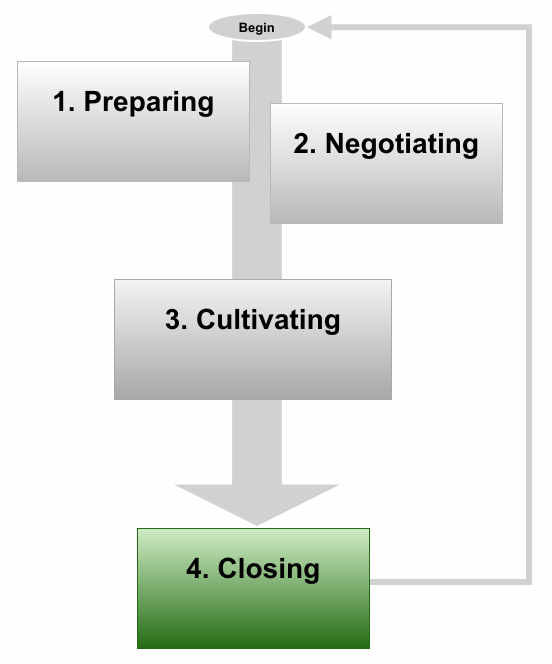Phase 4: Closing


Most research mentoring relationships will end naturally when a mentee achieves specific goals, finishes a training program, or reaches milestones for independence. The relationship might continue informally or take on a new shape, with the mentee transitioning into the role of a research collaborator.
Sometimes a mentor, a mentee, or both will experience major differences in their work styles, expectations for one another, motivation to persist in the relationship, or capacity to meet the planned goals in a timely manner.17,21,22 If this occurs, a respectful conversation should take place to explore the issue. In some circumstances, adding another mentor to the team can be beneficial. This could be done to distribute mentoring duties or engage another experienced investigator with a specific skill set that the current mentor lacks.
If the issue is unresolvable, it might be necessary to dissolve the mentoring relationship. Broaching the possibility of early closure can be difficult. Mentees, especially, are acutely aware of the impact that research mentors can have on their future success in science. This can make them hesitant to discuss concerns or seek out a new mentor.11,17 Institutions and programs can help by having a well-defined process for cordially initiating changes in research mentorship – one that does not place blame, but instead acknowledges that sometimes change is the best course of action. When feasible, a program might have scheduled time points at which both mentors and mentees are invited to continue or conclude their mentoring arrangement.
Expert Advice
- At some point, the need for mentoring will be surpassed. Know when to let go of your research mentees. Their growth and independence is a sign of your success as a mentor. Nudge your mentees to move on when you’ve offered all you can and are confident in their readiness to advance. Some mentees will need your explicit vote of confidence to take the next step.
- Keep an eye out for signals that there might be problems in your mentoring relationships.11 Ongoing ‘check-ins’ about the relationship and open communication between you and your mentee can help keep the relationship positive and productive.
- Work with your mentees to develop a plan for finishing key projects (including publications) as they transition out of the formal relationship or training program. This will ensure that important knowledge about projects is not lost when the mentee leaves your research group. It is especially important to reach agreement on what aspects of your team’s research (ideas, data, methods) will remain with you, and which your mentees can use and explore freely in building their own research program.
- Discuss what types of assistance you are willing to provide in the future to your mentees (for example, letters of recommendation, periodic career advice, sharing of research resources). Continue to be their sponsor by forwarding opportunities that might be beneficial to your mentee. Maintain a relationship by periodically checking in with your former mentees at conferences, through email, or by exchanging holiday cards.

